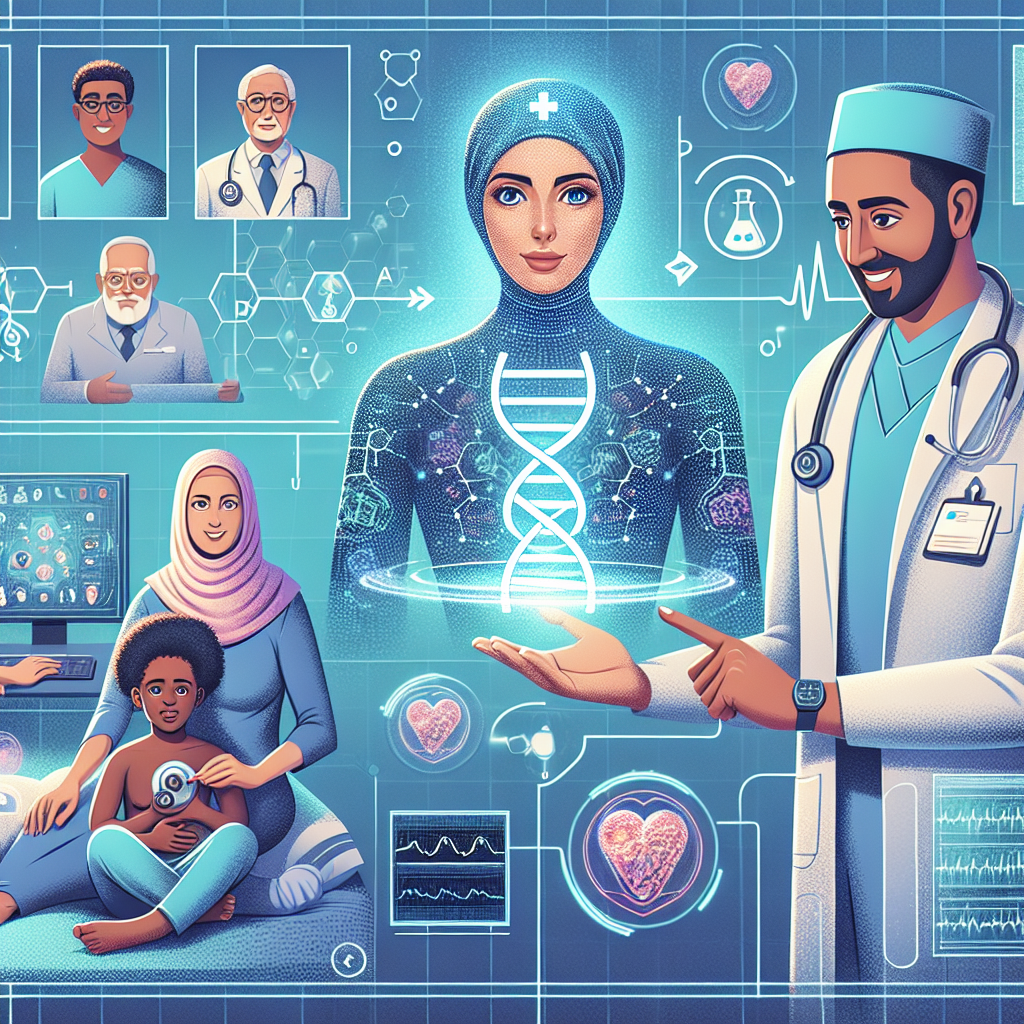In recent years, artificial intelligence (AI) has revolutionized many industries, including healthcare. AI integration in healthcare has the potential to significantly improve outcomes for patients, streamline processes for healthcare providers, and reduce costs for healthcare systems. Leveraging AI in healthcare can help to enhance the quality of care, increase efficiency, and ultimately save lives.
AI integration in healthcare involves the use of advanced algorithms and machine learning techniques to analyze large amounts of data and provide insights that can inform decision-making. This can help healthcare providers to make more accurate diagnoses, personalize treatment plans, and predict patient outcomes. By leveraging AI, healthcare organizations can improve patient care, optimize workflows, and enhance overall operational efficiency.
One of the key benefits of AI integration in healthcare is its ability to improve diagnostic accuracy. AI algorithms can analyze medical images, such as X-rays, MRIs, and CT scans, with a level of accuracy that is comparable to, or even surpasses, that of human radiologists. This can help to expedite the diagnosis process, reduce errors, and ensure that patients receive the appropriate treatment in a timely manner.
In addition to diagnostic imaging, AI can also be used to analyze other types of medical data, such as lab results, electronic health records, and genetic information. By integrating AI into healthcare systems, providers can gain valuable insights into patient health, identify patterns and trends, and make more informed decisions about treatment options.
Another important application of AI in healthcare is in personalized medicine. By analyzing a patient’s genetic information, medical history, and other relevant data, AI algorithms can help to identify the most effective treatment options for individual patients. This can lead to more personalized and targeted therapies, reducing the risk of adverse reactions and improving patient outcomes.
AI integration in healthcare can also help to improve patient engagement and adherence to treatment plans. By leveraging AI-powered chatbots and virtual assistants, healthcare providers can communicate with patients in real-time, provide personalized health information, and offer support and guidance throughout the treatment process. This can help to empower patients to take control of their health and make informed decisions about their care.
In addition to improving patient care, AI integration in healthcare can also benefit healthcare providers and organizations. By automating routine tasks, such as scheduling appointments, managing billing and administrative tasks, and analyzing data, AI can help to streamline workflows, reduce manual errors, and free up healthcare professionals to focus on more complex and critical aspects of patient care.
Furthermore, AI integration in healthcare can help to reduce costs and improve efficiency. By optimizing resource allocation, predicting patient needs, and identifying potential risks and opportunities, AI can help healthcare organizations to make more informed decisions about resource allocation, staffing levels, and operational efficiency. This can lead to cost savings, improved productivity, and better overall performance.
Despite the numerous benefits of AI integration in healthcare, there are also challenges and considerations that need to be addressed. One of the main concerns is the potential for bias in AI algorithms, which can lead to inaccurate or discriminatory outcomes. To mitigate this risk, healthcare organizations need to ensure that their AI systems are trained on diverse and representative datasets, regularly monitored for bias, and transparent in their decision-making processes.
Another challenge is the need for robust data governance and security measures to protect patient privacy and comply with regulatory requirements. Healthcare organizations need to establish clear policies and procedures for data collection, storage, and sharing, and implement robust cybersecurity measures to safeguard sensitive patient information.
In addition, the adoption of AI in healthcare requires investment in infrastructure, training, and change management to ensure successful implementation and adoption. Healthcare providers need to educate their staff on the benefits of AI, provide training on how to use AI tools effectively, and create a culture of continuous learning and innovation to drive successful integration.
Overall, leveraging AI integration in healthcare has the potential to transform the industry and improve outcomes for patients, providers, and organizations. By harnessing the power of AI to analyze data, personalize treatments, and streamline processes, healthcare organizations can enhance the quality of care, increase efficiency, and ultimately save lives.
FAQs:
Q: What are some examples of AI applications in healthcare?
A: Some examples of AI applications in healthcare include diagnostic imaging, personalized medicine, virtual assistants, predictive analytics, and robotic surgery.
Q: How can AI improve patient care in healthcare?
A: AI can improve patient care by enhancing diagnostic accuracy, personalizing treatment plans, improving patient engagement, and streamlining processes for healthcare providers.
Q: What are some challenges of AI integration in healthcare?
A: Some challenges of AI integration in healthcare include bias in AI algorithms, data governance and security concerns, and the need for investment in infrastructure, training, and change management.
Q: How can healthcare organizations mitigate bias in AI algorithms?
A: Healthcare organizations can mitigate bias in AI algorithms by ensuring that their systems are trained on diverse and representative datasets, regularly monitored for bias, and transparent in their decision-making processes.
Q: What are some benefits of AI integration in healthcare for healthcare providers?
A: Some benefits of AI integration in healthcare for healthcare providers include improved diagnostic accuracy, personalized medicine, streamlined workflows, and cost savings.
Q: How can healthcare organizations ensure successful adoption of AI integration?
A: Healthcare organizations can ensure successful adoption of AI integration by investing in infrastructure, training, and change management, educating staff on the benefits of AI, and creating a culture of continuous learning and innovation.

